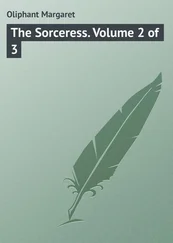Margaret Oliphant - The House on the Moor. Volume 1
Здесь есть возможность читать онлайн «Margaret Oliphant - The House on the Moor. Volume 1» — ознакомительный отрывок электронной книги совершенно бесплатно, а после прочтения отрывка купить полную версию. В некоторых случаях можно слушать аудио, скачать через торрент в формате fb2 и присутствует краткое содержание. Жанр: foreign_language, foreign_prose, на английском языке. Описание произведения, (предисловие) а так же отзывы посетителей доступны на портале библиотеки ЛибКат.
- Название:The House on the Moor. Volume 1
- Автор:
- Жанр:
- Год:неизвестен
- ISBN:нет данных
- Рейтинг книги:5 / 5. Голосов: 1
-
Избранное:Добавить в избранное
- Отзывы:
-
Ваша оценка:
- 100
- 1
- 2
- 3
- 4
- 5
The House on the Moor. Volume 1: краткое содержание, описание и аннотация
Предлагаем к чтению аннотацию, описание, краткое содержание или предисловие (зависит от того, что написал сам автор книги «The House on the Moor. Volume 1»). Если вы не нашли необходимую информацию о книге — напишите в комментариях, мы постараемся отыскать её.
The House on the Moor. Volume 1 — читать онлайн ознакомительный отрывок
Ниже представлен текст книги, разбитый по страницам. Система сохранения места последней прочитанной страницы, позволяет с удобством читать онлайн бесплатно книгу «The House on the Moor. Volume 1», без необходимости каждый раз заново искать на чём Вы остановились. Поставьте закладку, и сможете в любой момент перейти на страницу, на которой закончили чтение.
Интервал:
Закладка:
“Your papa has his own reasons, Miss Susan, and that’s neither for you nor me; but you see he lets Mr. Edward come. Who can tell how many more? – for Mr. Edward has the tongue of a nightingale, and steals folks’s hearts.”
“I wish he would sing into papa’s,” said Susan, laughing; “there’s never any music at Marchmain, Peggy. Oh, I wonder when Uncle Edward will come; look out and see if there’s anybody in the road; such a morning! and Horace will come in all muddy and sulky, and not get goodtempered the whole of the day. Peggy,” cried Susan, jumping down from the chair she had mounted to look out, “are boys always so dreadfully cross?”
“Indeed, Miss Susan, they’re little to be trusted,” said Peggy, with a grave face of wisdom, prudently refraining from blaming Horace, while she inculcated the moral lessons supposed to be most advantageous to feminine youth.
Susan shrugged her shoulders with a private internal reflection, which perhaps meant, “I should like to judge for myself;” but which said, “I am very glad, then, that we see so little of them.” For people don’t permit themselves to be very ingenuous, even in their thoughts – at least women and young girls do not. “I suppose, then,” she said very demurely aloud, “there never was but one Uncle Edward in the whole world, Peggy.”
“Eh, honey! if there were a hunderd the world would be saved, like the Lord said to Abraham,” cried Peggy. “My heart jumped when the master said it last night. I said to myself, ‘a good man’s coming, and a blessing will come with him.’ If I saw you out of this, you two unfortunate things, I would be content to go foot foremost the same day to Lanwoth Church.”
“That would be cheerful and pleasant for us, I am sure,” cried Susan; “I wonder how you dare say such a thing, Peggy – all about your own nonsense, and not a word of Uncle Edward! But, I say, Peggy – oh! tell me – Uncle Edward’s not a young man?”
Peggy took time to consider, pausing in her work for the purpose, with her hands covered with flour – for it was baking day. “I’m bound to allow he cannot be young – nay, it’s fifteen years since he was home,” cried Peggy, with a sigh. “Time flies! – it was the very same year, Miss Susan, that your mamma died.”
Susan paused with a question on her lips, awed by these last words; for she understood dimly that it was in some season of extreme and mysterious calamity that her mother’s life concluded. She could not have told how this impression had settled on her mind, but there it certainly was.
“Peggy,” she said suddenly, putting into words the suggestion of the moment, “was it mamma’s death that made papa so – so – “ – Susan hesitated for a word, and at last, with a natural hypocrisy, substituted one that did not express her meaning for a less dutiful term – “so sad?”
Peggy made no audible answer, but she screwed her lips into a tight round circle, through which came an invisible, inarticulate “No,” most emphatic and unmistakable though unpronounced, shaking her head violently as she did so. Susan was first frightened, then amused, at the extraordinary pantomime.
“Don’t shake your head off, however,” she cried, laughing. “But about Uncle Edward – you never will keep to the point, you troublesome Peggy! If he is an old man, what is he? Has he got any children? – where does he live? – do you know anything about him at all?”
“Not a mortal thing,” said Peggy, relieving herself by speaking loud. “Who can hear anything here, I would like to know? Not of my own brother, Miss Susan, let alone your mamma’s. But he’s coming, bless him! I’m strong in the hope nature will come with him, and something will be done for you two.”
“Peggy, you never spoke of us two before like that,” said Susan. “Has anything happened to us that we don’t know?”
“Oh, bless the innocent! – what do you know?” cried Peggy. “If I never said it before, it was because I saw no hope; but I’ve told your papa my mind, and that I can tell you, Miss Susan; and I’ll tell it to Mr. Edward, if Providence spares me, before he’s been twelve hours in this unlucky house!”
“You are very odd to-day, Peggy,” said Susan, looking at her with curiosity. “But I am sure if Uncle Edward gets us permission to see people sometimes, I should be very glad – but then, we have affronted everybody,” added Susan, with a little shrug of her shoulders. “However, he is coming himself – that is the great matter. Peggy, what will you have ready if he comes early? He cannot wait all the time till dinner! How foolish I was, never to think of it before! What shall we do?”
“We’ll have in the lunch, Miss Susan, and as good a lunch as anybody need wish for,” said Peggy, in triumph. “Is that all the good Peggy is for, to think upon things at the last moment? – for as sure as I’m living, there’s a wheel upon the big stones in the road!”
Susan sprang up upon the chair, leaped down again, her colour rising, her heart beating. Then she ran breathless towards the door – then paused. “Oh, Peggy! who must tell papa?” she cried, in great excitement and trepidation. Peggy, without pausing to answer her question, rushed past her and through the hall, to throw the door open and seize upon the carpet-bag, as before related. Peggy was not afraid of papa, and her shriek of joy and welcome, “Eyeh, Master Edward!” penetrated even through the closed windows and doors of the study, where Mr. Scarsdale sat as usual, while Susan stood in the hall, eagerly bending forward to see the newcomer, and speculating with herself whether it was safe to secure herself the pleasure of her uncle’s first greeting, without the dreadful operation of telling papa. The issue was, a sudden spring forward on the part of the excited girl, while her uncle – sad, oppressed, and wondering – stooped his deaf ear to Peggy, and tremulously bent over his carpet-bag. Susan had no sooner seen his face than the long restrained heart yearned within her – her mother’s brother – somebody who loved them! She sprang forward and clasped his arm with both her hands, and fell a-crying, poor child, as girls use, and looked up in his face, all-conquering in her wistfulness, and her smiles, and her tears. The old man caught her in his arms, and read her face as if it had been a picture, with eager wet eyes that, after a moment, could scarcely tell what they gazed on. In that moment the poor lonely girl woke up, by dint of finding it, to discover the love that had been wanting, the immeasurable lack of her young life. And the old soldier took his sister’s child – the only woman of the family – a new, tender, delicate tie, almost more touching and intimate than any other, into his fatherly old heart; and, on the instant, took courage about all the unknown troubles of the mysterious house, and was at home and himself again. They went in together to the dull dining-room, where Susan had no desire to remember that papa had not been told, and grew friends in half a minute, saying nothing but the common words that every stranger at the end of a journey hears from his entertainers. But the “Oh, Uncle, I am so glad you are come!” – the glistening eyes – the joyful young voice – the little figure fluttering about him, unable to rest for anxiety that he should rest, and have exactly what he wanted – spoke more eloquently than volumes of fine words. And Susan’s face had already almost reconciled Uncle Edward to the savage solitude of Marchmain, and the dreary blank of Lanwoth Moor.
CHAPTER VI
WHEN Colonel Sutherland had been established for nearly half-an-hour in the angular arm-chair, which was the most luxurious seat this room afforded, where he sat holding Susan’s hand and keeping her by his side, it suddenly occurred to him that he had forgotten the other members of the family in his satisfaction with his new-found niece. “But, my dear child, your father?” he said, hastily; “he expected me, did he not? – he is surely at home.”
Читать дальшеИнтервал:
Закладка:
Похожие книги на «The House on the Moor. Volume 1»
Представляем Вашему вниманию похожие книги на «The House on the Moor. Volume 1» списком для выбора. Мы отобрали схожую по названию и смыслу литературу в надежде предоставить читателям больше вариантов отыскать новые, интересные, ещё непрочитанные произведения.
Обсуждение, отзывы о книге «The House on the Moor. Volume 1» и просто собственные мнения читателей. Оставьте ваши комментарии, напишите, что Вы думаете о произведении, его смысле или главных героях. Укажите что конкретно понравилось, а что нет, и почему Вы так считаете.












